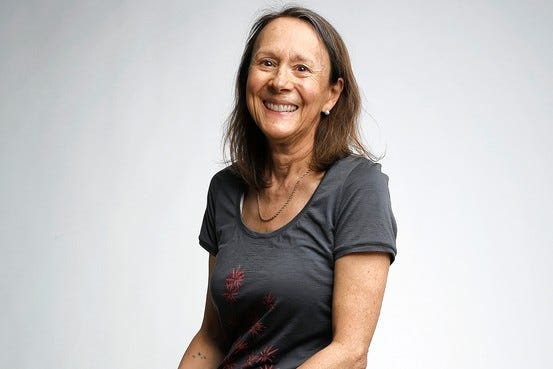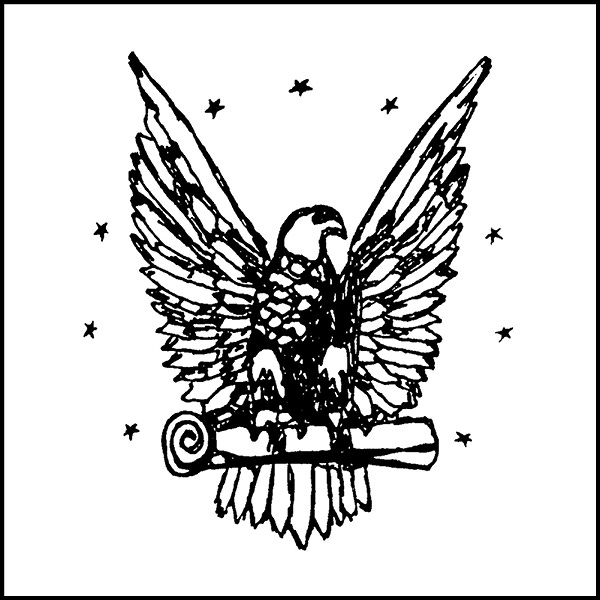This series is about people who, while fully aware of the upheavals underway in so many institutions — government, media, education, business, NGOs — have personalities that enable them to confront challenges that have engulfed this era and get things done.
Among the ways that genius is defined, one of the best is the ability to shape data and dots into coherence so their meaning and impact can be understood.
In 1999, I was invited to a gathering of people to consider what to expect in the twenty-first century in technology, the environment, politics, entertainment, and social norms. Esther Dyson was a presenter.
She said we were entering “The Attention Age,” in which opportunities, sensations and distractions were expanding so fast that focus was becoming harder — and this was years before the loaded handheld smartphone arrived in 2007 and made everything accessible and in many respects overwhelming.
As an editor and publisher of books, my takeaway was that that the task of choosing good books and making them better would become inextricable from getting them noticed by readers. And this has been my mission ever since.
Thanks for that, Esther Dyson.
**************************
Esther Dyson grew up in what she calls the “unique bubble” of the Institute for Advanced Study in Princeton, where her parents — a distinguished physicist and a mathematician — worked under J. Robert Oppenheimer and mingled with Nobel Prize winners and occasionally Albert Einstein.
As a teenager in the mid-1960s, she persuaded her parents to let her go to London and attend Loughton County Grammar School for Girls, in the fifth form. Enrolled at Radcliffe with what she describes as “pretty poor” grades, she took an administrator’s hint and traveled to Morocco, where her boyfriend, Timothy Crouse (later the author of the journalism classic The Boys on the Bus), was a Peace Corps volunteer. She recalls “hiding under the bed when one of Tim’s bosses showed up.”
Dyson started out in journalism but decided to go to Wall Street, where she believed — “mistakenly” she now acknowledges — people were interested in “facts and outcomes.” Here is her self-description, written with characteristic brio:
Conference impresario and tech analyst (Release 1.0 newsletter and PC Forum tech conference 1982-2007). Author of Release.2.0: A Design for Living in the Digital Age. Broadway Books, 1996. Best seller. Founding chair of ICANN [the NGO that administers the domain names for internet sites]. Cosmonaut in training Star City outside Moscow (2008-2009). Healthcare investor and then health philanthropist (Wellville.net project 2014-2024). Board seats including past, 23 and Me, WPP Group, Yandex and currently, Avanlee Care, Nebius, Press Reader. More on request. Portfolio of 100+ startups, widely recognized as leading angel investor.
So, her activity is extensive but, nearly as I can judge, more engaged than frenetic.
Does Esther Dyson’s have “oblivious confidence”? This is the trait I associate with the ingrained belief that accomplishments are to come, and challenges met, based on intuition, energy, and resilience. Luck happens but is not necessarily to be expected. Curiosity is certainly a prerequisite. But there is something else. In some people, success can mean arrogance and condescension towards others, and so knowing how to create, innovate, advise, and lead without a know-it-all demeanor is complicated.
Esther Dyson certainly seems to meet that standard.
I hadn’t been following Dyson when I came upon this podcast hosted by Andrew Keen, Episode 2313 of “Keen On.” Her role after a forty-plus-year career in technology, she told him, is to provide honest feedback to the tech powers-that-be while maintaining independence.
“In this role Dyson expresses concern,” Keen said, “about society’s vulnerability to ‘information diabetes’ — addictive content that, like processed food, provides short-term pleasure but long-term harm.”
For those of us who muddle through pervasive techno-jargon, Dyson’s accessible way of portraying ideas is welcome — which takes me back to The Attention Age before it had even really started.
***************
What is Dyson’s next project? She sent me her proposal for a book she is writing, to be called Term Limits. Our life spans have extended by a third in the past century or so. The range of information we have available and the opportunities to use all that information one way or another has never been greater.
Quoting from the latest version of the proposal:
“The purpose of the book is to use the constraints ‘Term Limits’ to examine trends…in our world today. There’s a certain conflict between the financial markets’ obsession with exponential growth, AI’s infinite scalability and society’s obsession with abundance…and the finite nature of life and attention.”
How to know when you have reached enough of anything? How to recognize and take advantage of limits.
Dyson’s generation, which is mine as well, is the first that needs to reckon with this yet-to-be-understood period of life, decades beyond what was traditionally thought to be a turning point from ascension to, well, something else.
Dyson says her approach to term limits is how best to take advantage of our accumulation of experiences and activities. Is more always longer and better?
Esther Dyson is a thinker who is also a doer, a combination that when properly deployed can get things done.





Brilliant and appreciated
Well stated, Peter. And there is so much more to admire about Esther — could be a book in it’s own right. Perhaps should be! Let’s boil it down to one *hugely* important piece of advice Esther has shared with those of us within earshot: in these times, identify precisely the area where one has capacity, energy and the willpower to make a difference. Do just that. Grateful that she has devoted much energy to Wellness… as a head of the spear.